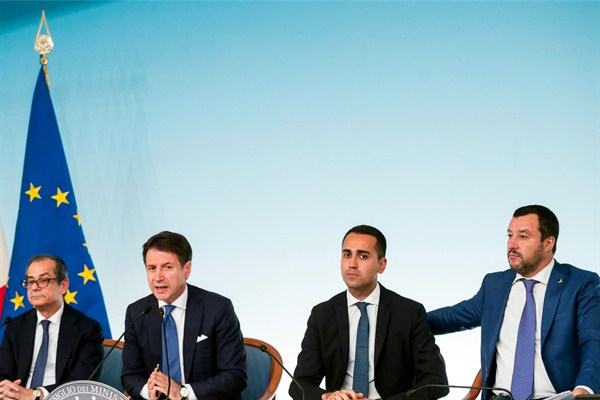Governing is always harder than being in the opposition. This is especially true when you’ve promised the moon to get yourself elected and dramatically raised voters’ expectations, as the populists in Italy’s self-styled “government of change” are quickly finding out.
The two parties that performed best in general elections last March—the Five Star Movement, or M5S, and the Lega, or League—made bold campaign pledges to reduce poverty and slash taxes. The M5S, with over 30 percent of the vote, emerged as the largest party in parliament. The League, led by Matteo Salvini, was the largest party within the right-wing coalition nominally led by former Prime Minister Silvio Berlusconi. No longer calling itself the Northern League and claiming to represent all Italians, not just the voters of its northern heartland, the newly nationalist League obtained a record 18 percent in the March vote.
These results were an earthquake. Voters punished both parties that had dominated the previous 20 years of Italian politics, Berlusconi’s Forza Italia and former Prime Minister Matteo Renzi’s Democratic Party, for their failure to quell rising immigration, to re-start an economy that has endured two decades of stagnation, and to revive Italy’s troubled south, where unemployment, corruption and crime are still disproportionately high. Not by chance, the M5S, whose early successes were in northern Italy, has become the party of choice for the disenchanted youth of southern Italy. Its leader, Luigi Di Maio, is a telegenic young man from outside Naples who fits this demographic perfectly.

